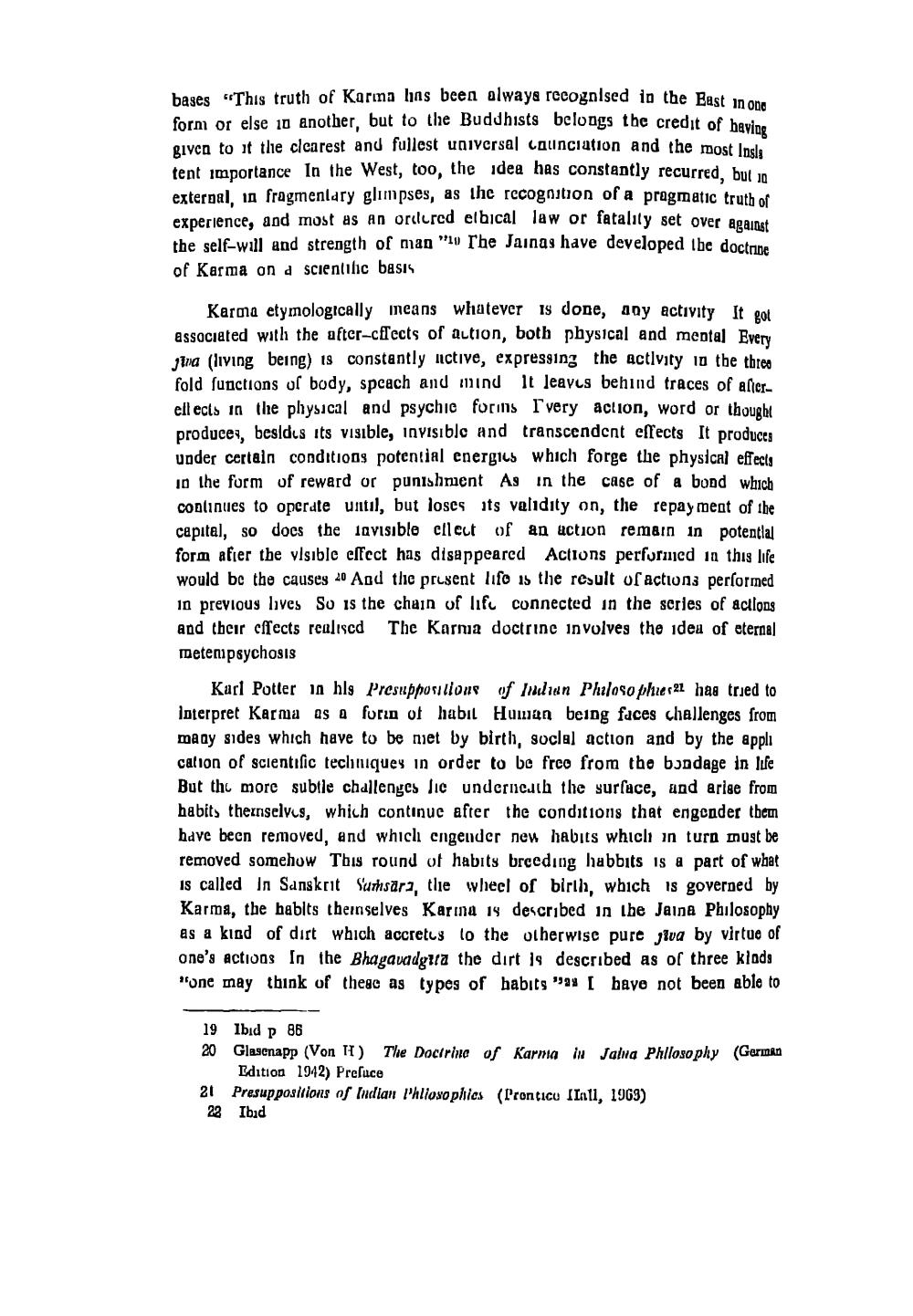________________
bases "This truth of Karma has been always recognised in the East in one form or else in another, but to the Buddhists belongs the credit of having given to it the clearest and fullest universal counciation and the most Insis tent importance In the West, too, the idea has constantly recurred, but in external, in fragmentary glimpses, as the recognition of a pragmatic truth of experience, and most as an ordered ethical law or fatality set over against the self-will and strength of man " The Jainas have developed the doctrine of Karma on a scientific basis
Karma etymologically means whatever is done, any activity It got associated with the after-cffects of action, both physical and mental Every ja (living being) is constantly active, expressing the activity in the thres fold functions of body, speach and mind it leaves behind traces of aftereflects in the physical and psychic forms I'very action, word or thought produces, besides its visible, invisible and transcendent effects It produces under certain conditions potential energies which forge the physical effects in the form of reward or punishment As in the case of a bond which continues to operate until, but loses its validity on, the repayment of the capital, so does the invisible ellect of an action remain in potential form after the visible effect has disappeared Actions performed in this life would be the causes 20 And the present life is the result of actions performed in previous lives So is the chain of life connected in the series of actions and their effects realised The Karma doctrine involves the idea of eternal metempsychosis
Karl Potter in his Presuppositions of Indian Philosophies21 has tried to Interpret Karma as a form of habit Human being faces challenges from many sides which have to be met by birth, social action and by the appli cation of scientific techniques in order to be free from the bondage in life But the more subtle challenges lie underneath the surface, and arise from habits themselves, which continue after the conditions that engender them have been removed, and which engender new habits which in turn must be removed somehow This round of habits breeding habbits is a part of what is called in Sanskrit Samsara, the wheel of birth, which is governed by Karma, the habits themselves Karma is described in the Jaina Philosophy as a kind of dirt which accretus to the otherwise pure java by virtue of one's actions In the Bhagavadgita the dirt is described as of three kinds "one may think of these as types of habits "as I have not been able to
19 Ibid p 86
20 Glasenapp (Von II) The Doctrine of Karma in Jalna Philosophy (German Edition 1942) Preface
21 Presuppositions of Indian Phliosophies (Pronticu IIall, 1963)
22 Ibid




